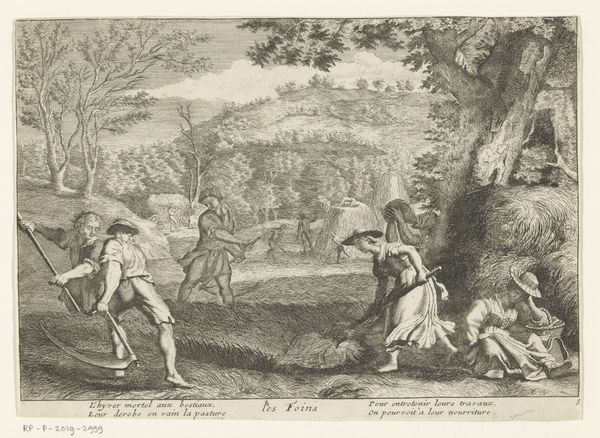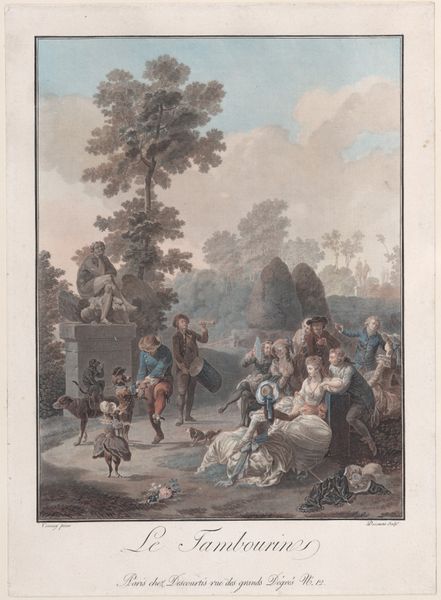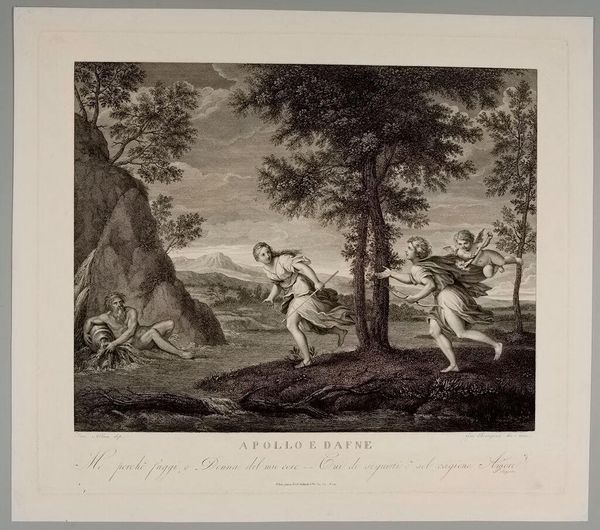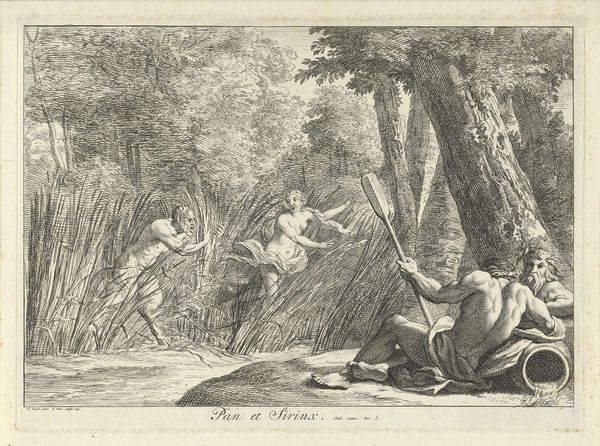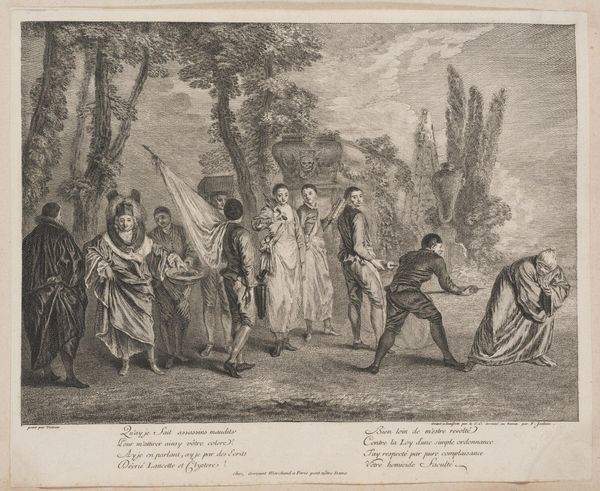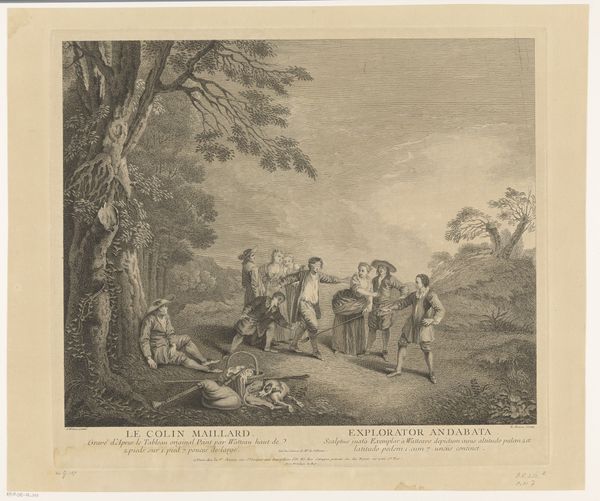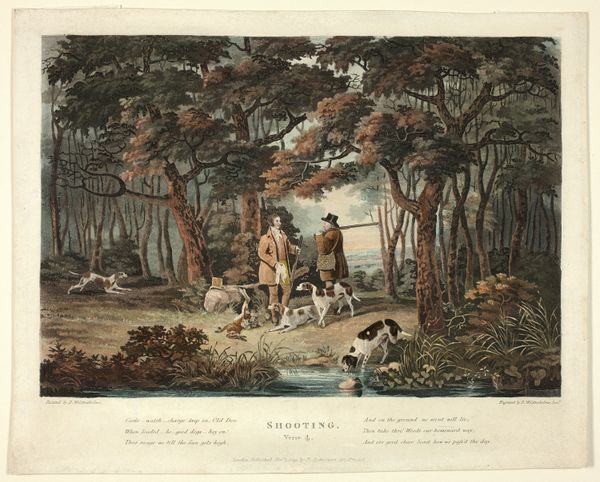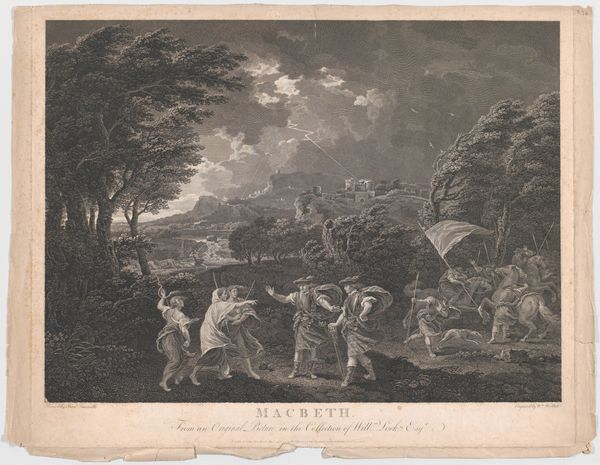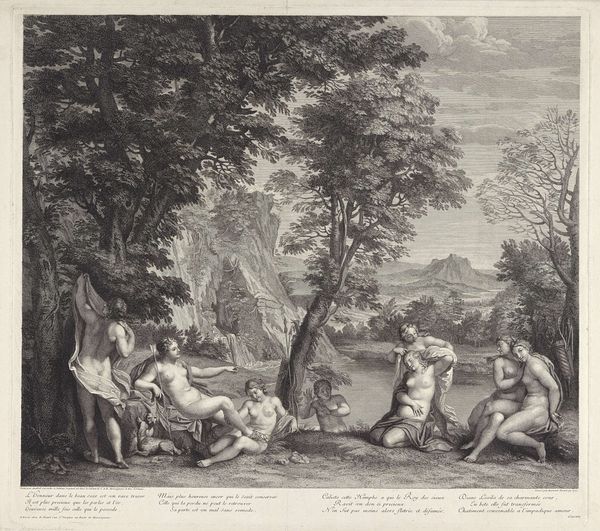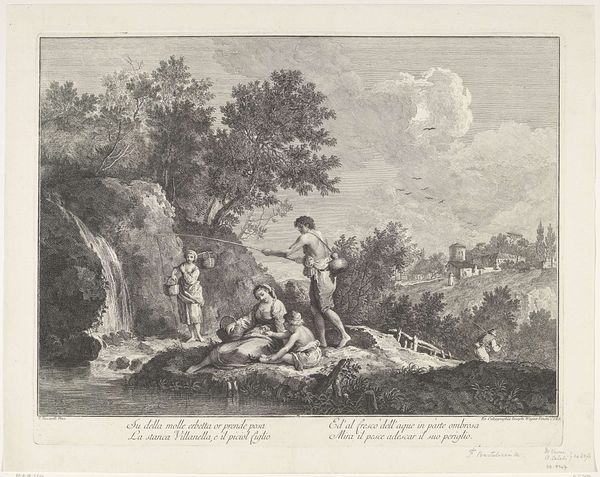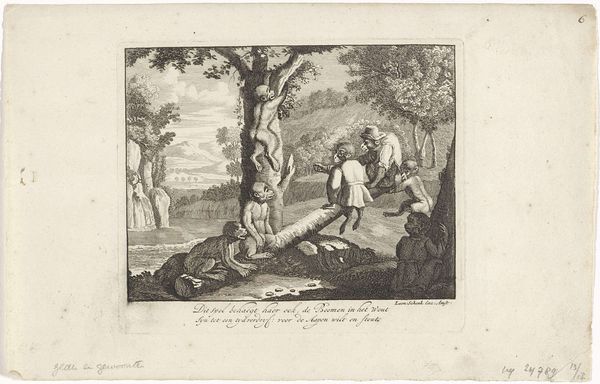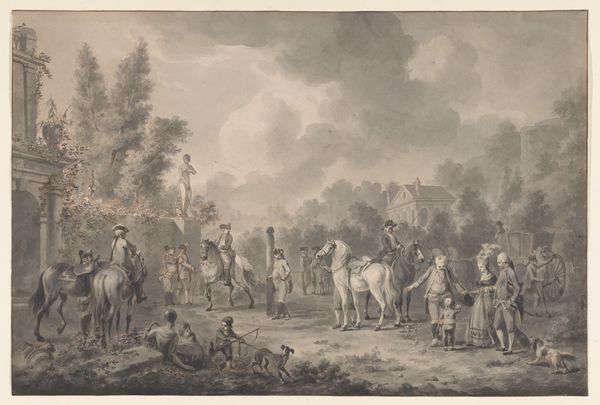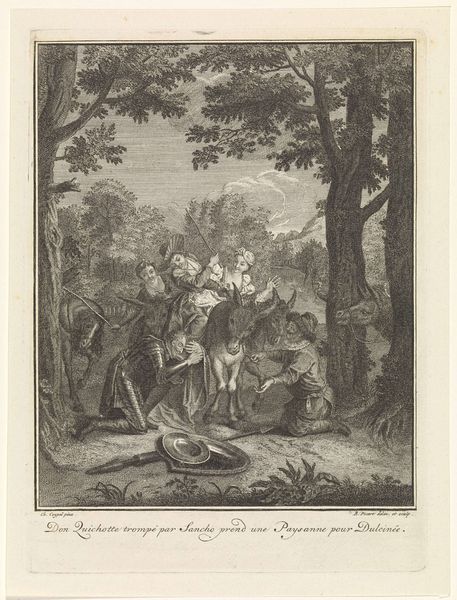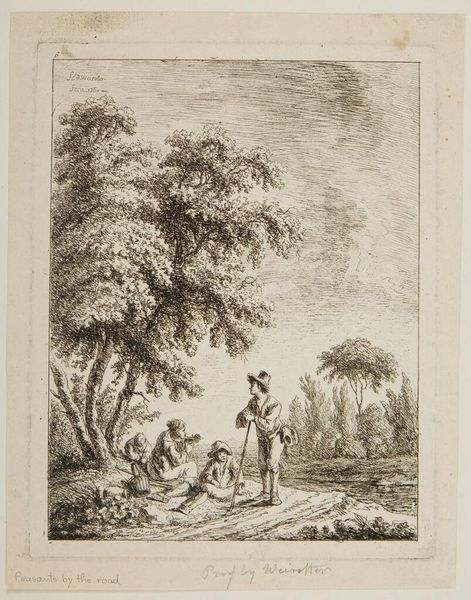
print, watercolor
#
figurative
#
water colours
# print
#
landscape
#
figuration
#
watercolor
#
coloured pencil
#
romanticism
#
genre-painting
#
watercolor
Copyright: Public Domain: Artvee
Curator: This is "Boys Robbing an Orchard," a print created around 1790 by George Morland. It’s a charming example of genre painting, capturing a seemingly everyday scene of youthful mischief. What’s your initial impression? Editor: Honestly, it feels like a half-remembered dream. The colors are so muted and soft. It's a world caught between reality and gentle fantasy. There's an immediate sense of nostalgic longing here, like trying to hold onto a childhood memory that's already fading. Curator: That's insightful. Morland was quite popular for these scenes of rural life, but it’s worth noting they often presented an idealized version of the countryside, a far cry from the harsh realities many faced. The setting isn't quite real—it represents a vision of it. Editor: Absolutely! There's a sort of theatrical quality. These boys seem more like actors than actual mischievous kids. The guy up in the tree—he's not even trying to look stealthy! More like a dancer making a grand leap! It's less about the action, and more about the staged emotions that come with it. Curator: Precisely. There’s also an interesting tension at play, as England continued to experience more widespread enclosure and rapid urbanization. Genre paintings of this period are complicated as they reveal longing for a lifestyle being pushed away by a wave of social and economical change. The sentimentalized depiction served to reinforce particular class structures while feigning nostalgia for some pre-industrial golden age. Editor: The details seem purposefully highlighted too. Check out that man guarding the trees... the apple trees themselves are secondary. And it looks like they know that it is also about him - not the apples! What’s fascinating, isn’t it, how a simple image of “boys being boys” carries a lot more about society in its light brushstrokes than we see at first sight. I dig that. Curator: Yes, well put. Morland was indeed tapping into something complex: the era’s fascination with rural life, tinged with anxieties about the future. It's both simple and surprisingly resonant when considered alongside these massive social changes. Editor: Thinking about it, these weren't his last artworks; so one asks, did he start questioning those anxieties himself? Or did he continue on with the performance. Very interesting food for thought as you stare at the image here. Curator: Indeed. It allows us to peer not just into the orchard of the image, but also into the complexities of British society on the cusp of modernity. Editor: Beautifully said. Now I see a whole new bushel of meanings there amidst the painted trees. Thanks!
Comments
No comments
Be the first to comment and join the conversation on the ultimate creative platform.
